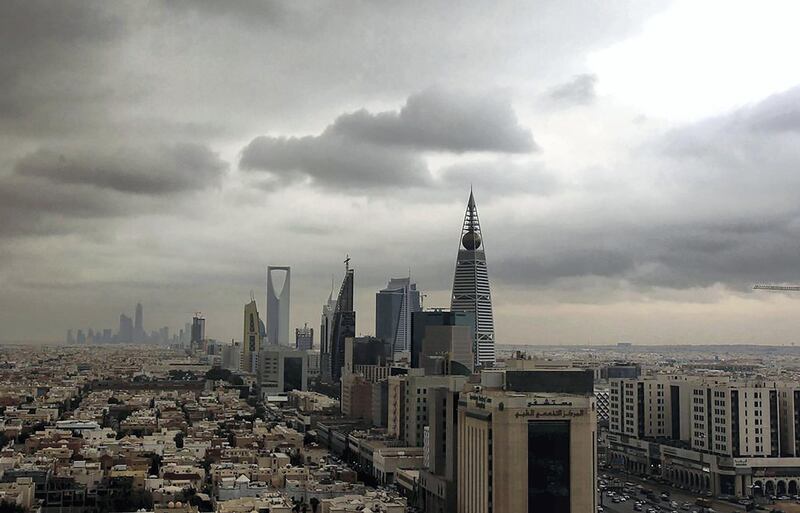S&P Global Ratings maintained a stable outlook for Saudi Arabia on expectations that moderate economic growth will continue until 2021 as the government boosts its investment.
S&P also affirmed its rating of 'A-/A-2' on Saudi Arabia's long and short-term foreign and local currency sovereign credit, it said in a report on Saturday.
"We expect that the Saudi authorities will continue to take steps to consolidate public finances over the next two years, while maintaining the government's large stocks of liquid external assets," the credit rating agency said.
The kingdom's economy is expected to grow an average of just over two per cent each year in the period between 2019 and 2021, the report showed.
_______________
Read more:
[ Saudi bankruptcy law to aid struggling businesses ]
_______________
Saudi Arabia, the biggest Arab economy, contracted 0.9 per cent last year and is projected to expand 2 per cent this year, 2.1 per cent in 2019 and 2.2 per cent in 2020, the World Bank said last week.
S&P could raise its ratings if the kingdom's economic growth prospects "improved markedly" beyond its current assumptions, it said. The agency may lower its rating if there is a build-up of arrears or a reversal in Saudi's fiscal consolidation efforts.
"Higher-than-expected fiscal revenues have been met with higher expenditures, but we do not expect a material deviation from official fiscal targets," S&P Global Ratings said.
In its first pre-budget meeting, Saudi Arabia said it plans to boost spending by more than 7 percent in 2019 to stimulate economic growth, while continuing to gradually reduce its budget deficit.
The kingdom is forging ahead with an ambitious plan to reduce the economy's reliance on oil, create jobs for Saudi nationals, reform the domestic education and job market and consolidate the budget.
The government is implementing a series of reforms that include raising the participation of women in the workforce and increasing the private sector's role in the economy, while aiming for a balanced budget by 2023.
Among the reforms the kingdom has already implemented as part of its Vision 2030 economic transformation strategy are the introduction of a 5 per cent VAT in January, far-reaching changes to its capital markets and the enactment of new bankruptcy legislation to support corporate financial restructuring.
S&P Global Ratings has raised its fiscal consolidation expectations for Saudi in 2018 and 2019 as a result of higher oil price assumptions, but expects the pace of consolidation will slow in 2020 and 2021 as prices fall again, it said.
It forecast an annual average increase in government debt of about two per cent of the gross domestic product from 2018 to 2021, down from its earlier assessment of three per cent, it said.






